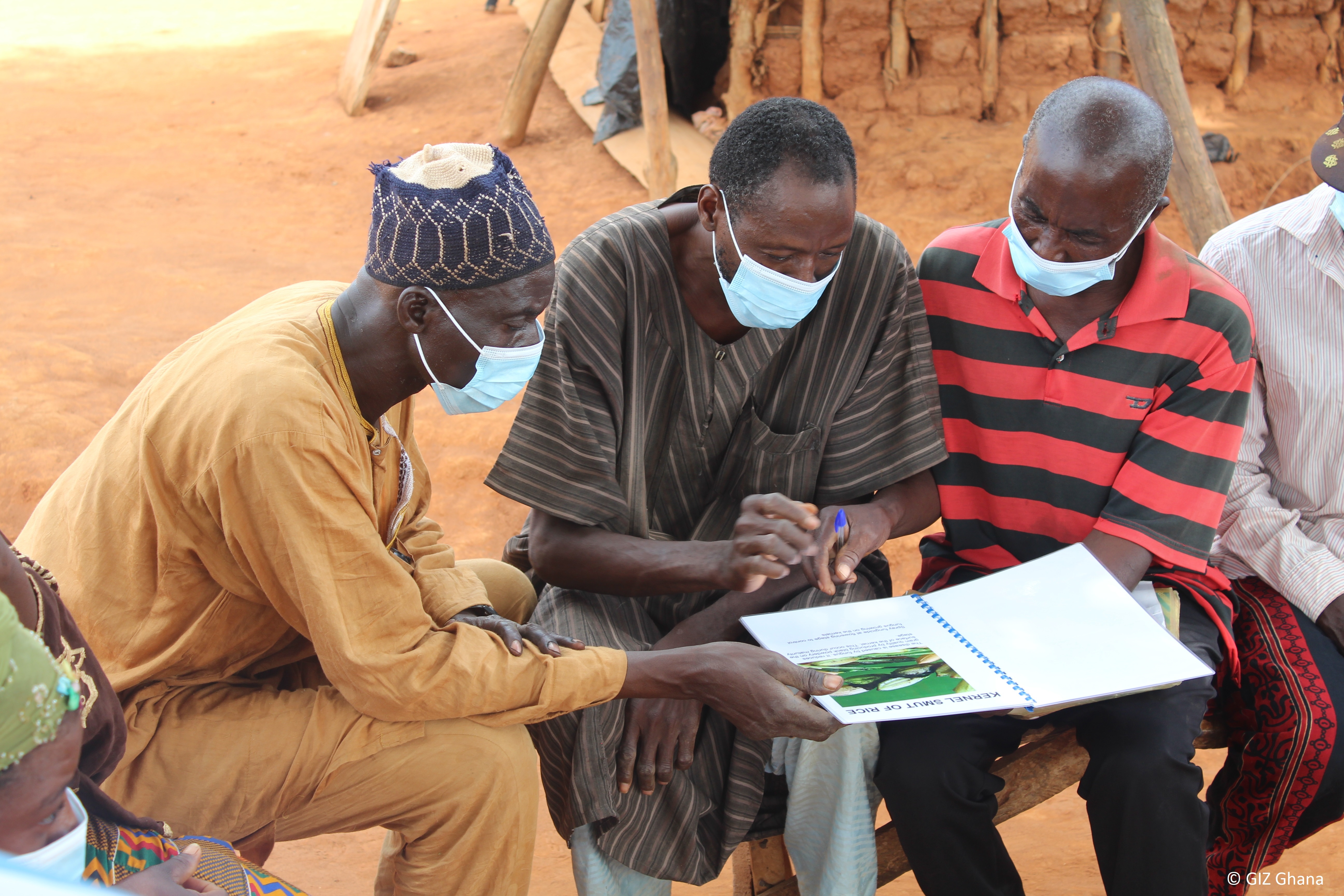Rice farmers equipped for the next production season
352 rice farmers, including 44 per cent females and 34 per cent youth, have been trained in good farming practices pertaining to field crop production and soil management. The training forms are part of the Development of Rice and Aquaculture Value Chain for Youth Empowerment (RAV Chain) Project in Ghana.
In Ghana, farmers are faced with issues of drought because rice is cultivated under rain-fed conditions. Before the training started late in 2020, farmers had little or zero knowledge of pests and diseases that may attacked their rice fields and misapplied fertilizer to the rice fields resulting in soil acidity. “Previously, we did not know how the pests attacked our farms. Now I know, and it all begins with planning; I will factor in insecticides during the farm planning phase to increase yield and I believe my revenue will increase,” remarked beneficiary farmer Osman Karim.

Rice is the second most important cereal in Ghana after corn; it has become a major staple food in the country. Rice consumption per person per year (per capita consumption) stands at about 35kg (US Department of Agriculture, 2018). Demand for the commodity however far outstrips domestic production: 66% of rice consumed in Ghana is imported (Oxford Business Group, 2018). In Sub-Saharan Africa, rice has become a political crop due to its important role within the value chain with implications for collective stability in food security.
Out of the 352 beneficiaries a total of 50 leaders from 11 farmer groups were selected to participate in train the trainers. These exercises were designed as innovative clinics intended to coach, mentor and build the capacity of the farmers to serve as community extension personnel to fellow farmers. The multiplication of knowledge through local trainers will speed up rural learning, technology diffusion and adoption among farmers. “I wouldn’t have lost my rice farm to pests and diseases if I had received this training earlier. I will surely apply this knowledge in the next production season“, remarked Fatau Mumuni, a lead farmer in one of the beneficiary-communities.
RAV Chain project aims to create jobs
and improve the working conditions of farmers in the areas of aquaculture, rice cultivation and agribusiness. The project is expected to create 670 new jobs and improve the working conditions of some 1,800 individuals by 2022. So far 500 farmers have received 45 metric tons of certified AGRA rice seeds for the 2021 planting season. Concurrently Invest for Jobs is collaborating with and supporting Western Deedew – a rice production company in Ghana, with the installation of rice processing equipment to improve the value chain.
The RAV Chain project is supported by Invest for Jobs, the brand of the Special Initiative "Decent Work for a Just Transition" of the German Federal Ministry for Economic Cooperation and Development (BMZ) and implemented by the Deutsche Gesellschaft für Internationale Zusammenarbeit (GIZ) GmbH.